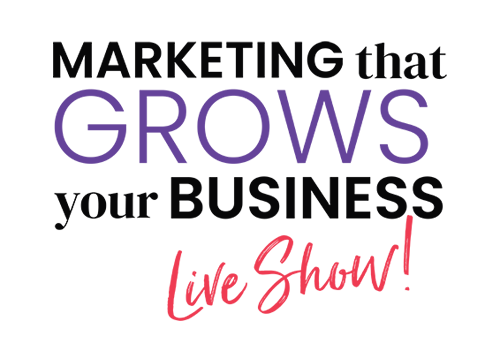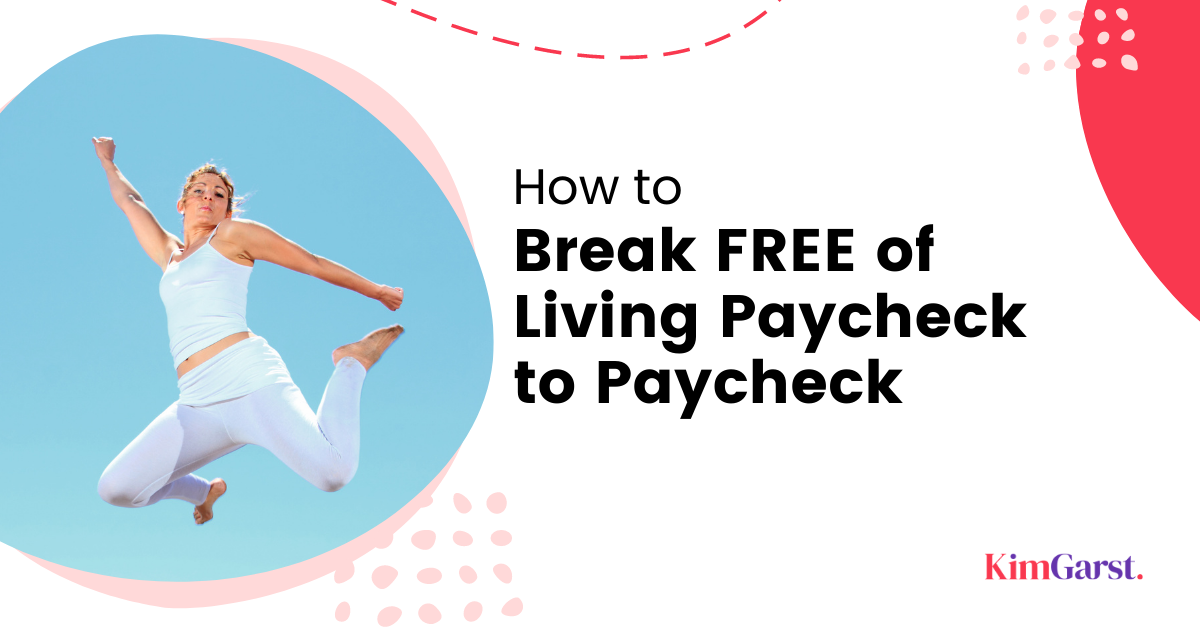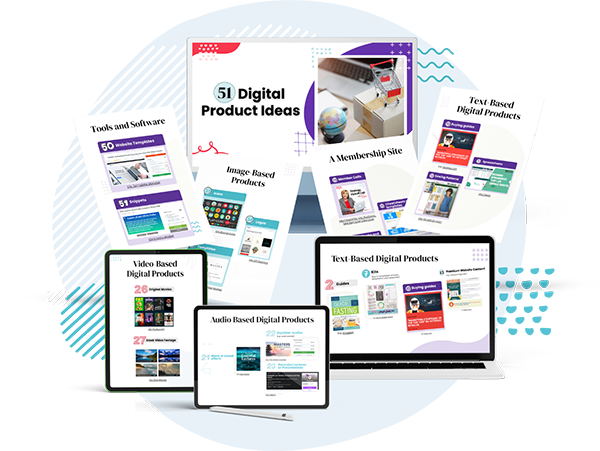Do you feel like, despite your best efforts, you’re constantly running low on money…living paycheck to paycheck? Can you relate to that ole sayin' that there is more month than money?
The good news (if you can call it good), is that you’re not the only one – according to one survey, 69% of Americans have less than $1,000 in savings. Yikesters!
? 69% of Americans have less than $1,000 in savings. YIKESTERS! ?Click To TweetBut, while living paycheck to paycheck may be “normal”, it’s sure not a good feeling or a good situation to be in!
It can leave you feeling:
- Anxious or worried about unexpected expenses
- Feeling a tad bit incompetent at managing your money (or life!)
- Embarrassed – especially when you compare yourself to those around you
You may also feel STUCK – stuck in a job you hate, in a living situation that’s less than ideal…maybe even in a relationship, you’d like to break free of.
If any of this sounds familiar, keep reading. I’m going to offer some practical strategies for helping you break free and become MORE confident, MORE competent, and in CHARGE of your financial situation once and for all!
Step 1: Tackle your money blocks
This one might sound a little….hokey….but trust me – it’s super important!
Your money blocks are all the negative beliefs and attitudes you have toward money…and toward your ability to MAKE money.
You have to address these blocks, or they will only gain MORE power, seeping into your unconscious and impacting all the decisions you make related to your work and finances.
Some common money blocks that may be holding you back include beliefs like:
- I don’t deserve to make money
- I’m not good enough, smart enough or experienced enough to succeed
- I just want to help people…not make lots of money
- If I make more money than my partner, he or she will feel insecure
If you’re struggling to make ends meet and living paycheck to paycheck, it may be that you’re giving your money blocks too much power in your life.
Take some time to write down all your explicit beliefs about money and work, and to think about what subconscious beliefs might be impacting your ability to make more money.
If you’re not sure where to start, start at the beginning: think about what your parents taught you about making money, what they believed about it, and how that may have impacted you.
Once you’ve identified your major money blocks, consciously surrender them – tell yourself you won’t let them hold you back anymore, and that they no longer have power over you.
Then start to watch amazing things happen!
Step 2: Let go of the idea you need to make $X in order to get ahead
Many of us have this idea that only people who make a lot of money can afford to save and get ahead.
This is 100% untrue!
While it’s true that you need a base amount to meet your basic needs, you DON’T need to have an amazing job and huge income in order to get ahead.
Say this out loud with me so you really get it:
“It’s not about how much I make, it’s about how I manage what I have.”
You DON’T need to have an amazing job and huge income ? in order to get ahead. Say this out loud with me so you really get it: “It’s not about how much I make, it’s about how I manage what I have.” BOOM! ?Click To TweetIt’s easy to think, “If only I made $X, I could break free of this cycle!”
Or, “If I could just make an extra $X a month, I could finally start getting ahead.”
Or, you might think, “If only I didn’t have to pay $500 in student loans…or $1000 for insurance…or $2000 on rent, I could actually start saving some money.”
But the reality is that, almost everyone CAN get ahead simply by becoming better stewards of what they DO have – not what they think they SHOULD have.
Think making $100K, 250K or even $500K/year would be the magic bullet that would solve all your problems?
Think again.
This CNBC article gives an annual breakdown of expenses for a real couple making a combined income of $500,000.
You’d think it would be easy for them to save lots of money, right? Well, as you can see in the breakdown below, even they aren’t doing a great job of getting ahead!
It’s easy to look at the breakdown above and point out ways they could reduce their expenses (for example, they probably don’t need to spend $18K a year on vacations!).
But while your spending habits probably aren’t quite as extravagant as the ones above, there are very likely ways you can tighten the reigns on your spending, and become a better steward of your money…even if you aren’t making a ton of it!
Step 3: Address your spending habits
These strategies may seem obvious and simplistic at first glance, but they really are the KEY to getting a handle on your monthly cash outflow.
I promise that if you implement even a few of the ideas below, you’ll be getting ahead in no time!
Look for BIG ways to save on your BIG expenses.
Your fixed expenses are ones you need to pay month after month that tend to offer the least flexibility.
These typically include things like rent or mortgage, taxes, insurance and household utilities (although you’ll usually have some flexibility to reduce things like phone and cable bills).
Your fixed expenses will often comprise the biggest part of your budget, especially in areas where housing costs are high.
While you won’t necessarily be able to reduce all your fixed costs, there are some ways to potentially free up hundreds – or even thousands – of dollars each month.
- Live below your means when it comes to housing. While most experts recommend not spending more than 30% of your income on housing, that doesn’t mean you HAVE to spend 30% of your income on housing. If you can get away with spending 25 or even 20%, this can free up at least a couple of hundred dollars each month. You can also consider ways of defraying your current housing costs like renting out a room or getting a roommate.
- Negotiate your utility bills. Necessities like water and heat may be non-negotiable, but things like cable, phone and internet are relatively easy to reduce. Call your provider and ask for cost-saving ideas or tips, as well as any loyalty bonuses they can offer.
- Shop around for insurance. You might be surprised at how much you can save by switching to another home or car insurer. You can also inquire about raising your deductible, which can result in some good monthly savings (just be sure you’re able to cover the deductible should you ever need to make a claim!).
- Reevaluate your transportation costs. Car payments, gas and insurance can seriously eat away at your budget. Consider doing away with expensive monthly payments and instead buy a used car you can afford to pay for all at once. If you live in a big city, you might even consider giving up the car altogether in favor of Uber’ing or even using your bike!
Get a handle on your negotiable spending.
While reducing your fixed costs will often make the biggest impact on your budget, there are LOTS of simple ways to save money on the rest of your costs.
And when you add up the savings, you’ll be surprised at how much you can save on an ongoing basis!
Some of the most effective ways to reduce your variable costs include:
? The average American spends around $3,000 a year on eating out. ? #InstantSavingsClick To Tweet- Opt out of eating out! The average American spends around $3,000 a year on eating out. Make a habit of bringing your lunch to work, making coffee at home and cooking more meals instead of relying so much on takeout.
- Buy second-hand. Some of the most financially-secure people I know regularly shop for clothes, furniture and household items at thrift stores and consignment shops! There are amazing online consignment stores like ThredUp and Poshmark!
- Reduce your entertainment costs. Activities like going to the movies, going for drinks or even paying for cable are luxuries that can easily be forfeited if you’re serious about getting ahead financially.
- Never put “fun” stuff on credit! Ideally, use your credit cards only as a way to manage your cash flow, paying off your balance each month. While you may need to use it to supplement your income, vow to keep luxuries like vacations, jewelry or electronics on a cash-only basis!
Step 4: Get a side gig
While the steps above may be enough to help you break free of living paycheck to paycheck, there may be times you’ll need to bring in some additional income to make things work.
If this is true for you, I have good news: there are tons of ways you can make extra money from home without quitting your day job or giving up on your primary business.
Following are 5 quick and easy ways to consistently bring in some extra income each month!
1. Offer local services through TaskRabbit.com
TaskRabbit is an app that lets you find one-off gigs like home repairs, yard work and housecleaning. You simply sign up with the app, and then receive notifications when someone in your area needs your services.
When you see a gig you like, apply for it and then get in touch with the client. TaskRabbit even handles all the invoicing right within the app, making the entire process quite painless!
2. Create and sell an online course
Everyone is an expert in something. Turn that knowledge and expertise into something useful and lucrative by creating a course you can sell.
Start by browsing through online course creation site Udemy to get some ideas for your course. The site offers courses on everything from plumbing, to coding, to personal development to learning to play guitar.
There’s something for everyone!
3. Become a freelancer
It’s never been easier to find work as a freelancer – no matter what field you’re in. Some freelancing ideas: writing or editing, virtual assistant, web or graphic designer, consultant or coach, tutor, photography.
Not sure where to start? Check out freelancer job boards like FreelanceWritingGigs.com, SimplyHired and LinkedIn’s ProFinder job board.
4. Start a niche blog
Want to make some extra money writing about something you love? Then starting a niche website or blog could be just the right thing for you.
Starting a blog is quick and easy, and over time it can generate a steady inflow of cash to supplement – or even replace – your current income.
Want more info? Check out my posts How To Make Money With Your Website Part I and Part II.
5. Create and sell products locally and online
If you have a knack for creating handmade goods, this could be a great option for you. You can make anything from home-baked goods, to clothing, to furniture to jewelry, and then sell it at local farmer’s markets or swap meets.
Want to leverage the power of the internet? Sell your stuff locally through local Facebook buy and sell sites or Craiglist, or reach a global audience using Etsy.
Looking for more ways to make some extra cash? Check out this blog post:
30 Ways To Make EXTRA Money From Home
Final thoughts
I hope this post has given you some ideas and inspiration for getting a handle on your financial situation so you can stop living paycheck to paycheck While it’s simplistic to say there are 4 surefire steps to overcoming financial struggles, the strategies above WILL help you get ahead…if you implement them diligently.
Would love to hear from you: What strategies or tips do you have for breaking free of living paycheck to paycheck? Which strategies above are you going to try? Share below!
About Author
Kim Garst
Kim Garst is a renowned marketing strategist and speaker who is trailblazing the use of artificial intelligence in digital marketing. With over 30 years of experience as an online entrepreneur, Kim helps entrepreneurs grow their business and authority online by using AI technology. She is leading the way with proven AI frameworks that help entrepreneurs build authority in their space.
She is keynote speaker and an international best-selling author of Will The Real You Please Stand Up, Show Up, Be Authentic and Prosper in Social Media.
Named by Forbes as a Top 10 Social Media Power Influencer, Kim is well-known for her skill to simplify complex technology and make the use of AI understandable for business growth. Her relatable, actionable advice helps guide new entrepreneurs to harness the power of AI to succeed in digital marketing. Kim is leading the way in combining human and technological skills to create a new model for AI-powered marketing.









These are great tips and resources! You really got the ideas flowing for me. Tnank you!
Love hearing this, Melinda!!
Wow, extremely useful information on this post. I am glad I found this very useful for me. Thanks for Sharing such a Great Information. All the Best
I liked your focus on people needing to let go of the idea they need to make $X in order to get ahead. We too often compare ourselves to others and distract ourselves from our own financial goals and the areas we actually have control over.
I think a key is people around you that resemble your own financial goals: it’s easier to match the Joneses when they’re in Hyundais and Levis instead of BMW and Gucci.
Keeping your spending in check will open you up to growing your means so that you can take the next steps to financial freedom. It’s step one! As you said, it’s important to start now so that time and compound interest are on your side–and you can stop living paycheck to paycheck!
Interestingly, I am not new to this but one statement that strikes me so deep in all these write up.. “It’s not about how much I make, it’s about how I manage what I have.” this for me is the paradigm shift